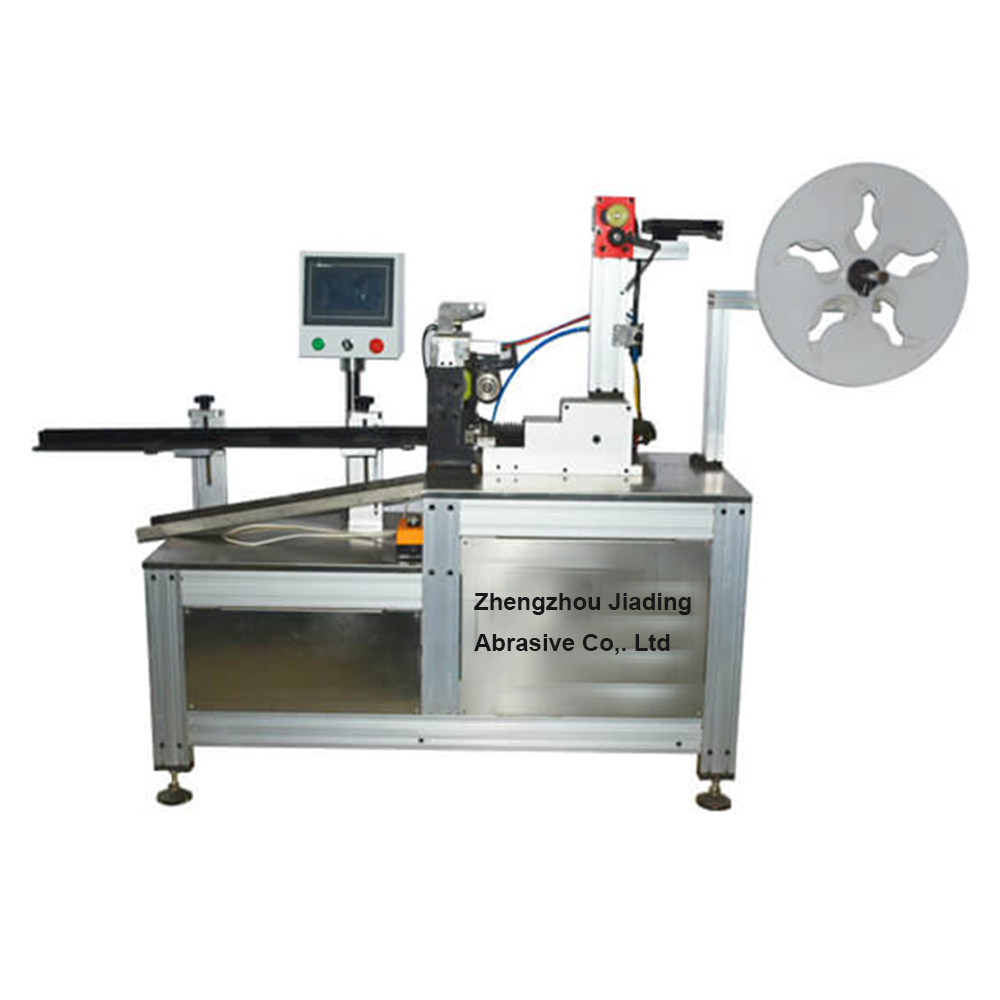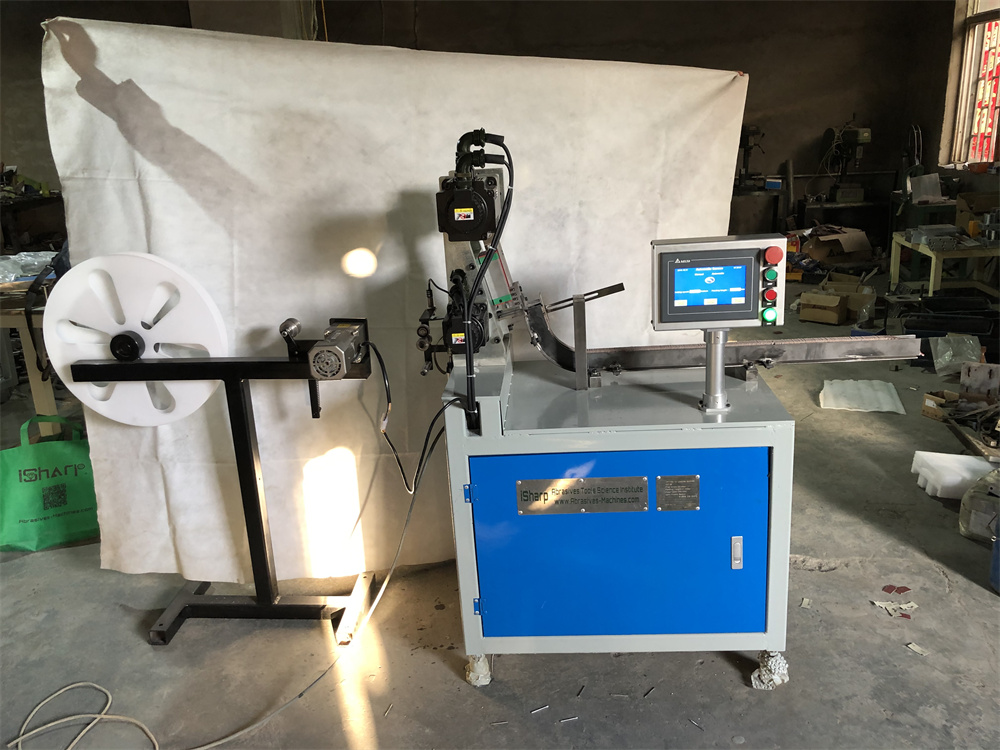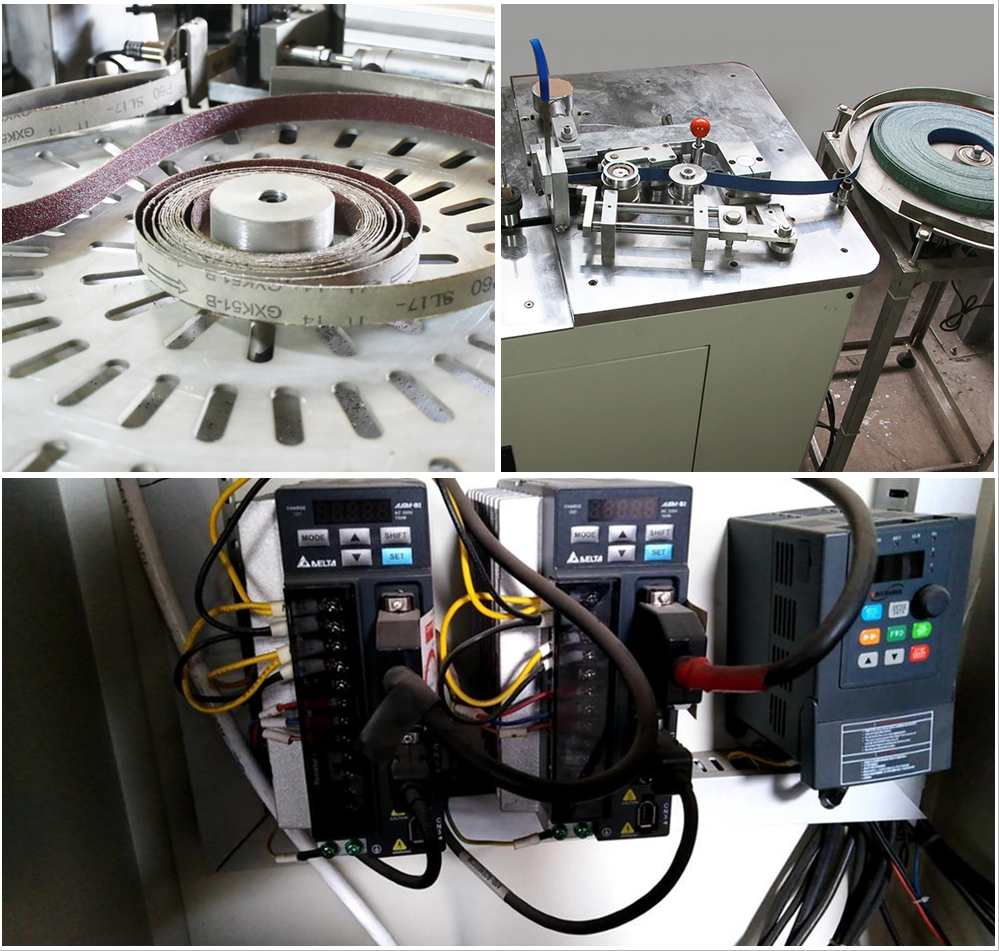Flap Wheel Machine Mounted wheel machine is for producing flap wheel with shaft,which can slice abrasive clothes and place small pieces automatically. more effecient than arranging the flaps manually.
working station: 1-4 stations
We distributes and wholesales various brands of Bonded Abrasives , Abrasive Sanding Disc, Cotton Buffing Wheels, Flap Disc Backing Pad, Flap Disc Adhesive , and Surface Conditioning Product etc, and enjoy a high position among consumers.
abrasive tool making machine, flap wheel making machine, automatic flap wheel machine, semi-automatic flap wheel machine, machine manufacturer Zhengzhou Jiading Abrasive Manufacturing Co.,Ltd , https://www.jiadingabrasive.com
First, the manufacturing industry is also in an era of data explosion
In recent years, with the rapid development of information technology and communication technology such as the Internet, Internet of Things, cloud computing, etc., the skyrocketing data volume has become a serious challenge and valuable opportunity faced by many industries. With the advancement of manufacturing technology and the popularization of modern management concepts, the operation of manufacturing companies is increasingly dependent on information technology. Today, the entire life cycle of manufacturing and the entire life cycle of manufacturing products involves a lot of data. At the same time, the data of manufacturing companies also showed an explosive growth trend.
Manufacturing companies need to manage a wide variety of data, involving a large amount of structured data and unstructured data:
(1) Product data: design, modeling, process, processing, testing, maintenance data, product structure, component configuration relationship, change record, etc.
(2) Operational data: organizational structure, business management, production equipment, marketing, quality control, production, procurement, inventory, target planning, e-commerce, etc.
(3) Value chain data: customers, suppliers, partners, etc.
(4) External data: economic operation data, industry data, market data, competitor data, etc.
With the development of mass customization and network collaboration, manufacturing companies also need to receive personalized customization data from many consumers in real time, and coordinate the resources of all parties through the network to organize production and manage more relevant data.
Second, big data is the lifeblood of the industrial Internet
The great value that big data can bring is being recognized by traditional industries. It presents a new perspective for manufacturing managers and participants to look at the manufacturing value chain through technological innovation and development, as well as the comprehensive perception, collection, analysis and sharing of data. .
(1) Realizing intelligent production
In Germany's "Industry 4.0", the information of the equipment sensing and control layer of the plant/shop is integrated with the enterprise information system through the information physical system (CPS), so that the production big data is transmitted to the cloud computing data center for storage and analysis. Decisions and in turn guide production.
In Germany's "Industry 4.0", the information of the equipment sensing and control layer of the plant/shop is integrated with the enterprise information system through the information physical system (CPS), so that the production big data is transmitted to the cloud computing data center for storage and analysis. Decisions and in turn guide production.
Specifically, the production line and production equipment will be equipped with sensors, grab data, and then connect to the Internet via wireless communication, transmit data, and monitor the production itself in real time. The data generated by the production is also processed, delivered, and fed back into the production process, upgrading the plant to an intelligent network that can be managed and adaptively adjusted, optimizing industrial control and management, and maximizing the use of limited resources. , thereby reducing the cost of configuration of industry and resources, so that the production process can be carried out efficiently.
In the past, the natural wear and tear of the equipment itself caused certain changes in the quality of the product. Due to the development of information technology and Internet of Things technology, it is now possible to sense the data in real time through sensing technology, know what faults have occurred in the product, and where accessories are needed, so that these factors in the production process can be accurately controlled, and the production intelligence can be truly realized. . Therefore, to a certain extent, the big data generated by the sensors in the factory/shop directly determines the intelligence level of the intelligent equipment required by “Industry 4.0â€.
In addition, from the perspective of production energy consumption, the sensors are used to centrally monitor all production processes in the production process, and it is possible to find abnormal or peak energy consumption, thereby continuously optimizing energy consumption in real time during the production process. At the same time, the analysis of big data in all processes will also significantly reduce production energy consumption as a whole.
(2) to achieve mass customization
Big data is the basis of intelligent manufacturing. Its application in mass customization of manufacturing includes data collection, data management, order management, intelligent manufacturing, customized platform, etc. The core is customized platform. Big data applications can be implemented with custom data reaching an order of magnitude. Through the mining of big data, we can achieve more applications such as popular prediction, accurate matching, fashion management, social applications, marketing push and so on. At the same time, big data can help manufacturing companies improve the targeting of marketing, reduce the cost of logistics and inventory, and reduce the risk of investment in production resources.
Using these big data for analysis will lead to a significant increase in warehousing, distribution, sales efficiency and a significant cost reduction, and will greatly reduce inventory and optimize the supply chain. At the same time, using sales data, sensor data from products, and data from supplier databases, manufacturing companies can accurately predict the demand for goods in different market regions around the world. Manufacturing companies can save significant costs by tracking inventory and sales prices.
The essence of "Industry 4.0" is based on the information physics system (CPS) to realize the "smart factory", which enables the intelligent device to judge, analyze, self-adjust, automatically drive the production and processing, and finally complete the product according to the processed information. It can be said that the smart factory has already prepared for the mass production of the final manufacturing.
To realize the individualized needs of consumers, on the one hand, manufacturing enterprises can produce products or services that meet consumer preferences, and on the other hand, the Internet needs to provide consumers with personalized customization needs. Due to the large number of consumers and the different needs of each person, the specific information of the demand is different, and the demand changes constantly, which constitutes the big data of product demand.
The interaction and trading behavior between consumers and manufacturing companies will also generate a large amount of data, mining and analyzing these consumer dynamic data, which can help consumers participate in innovative activities such as product demand analysis and product design, and make product innovation. contribution. Manufacturing companies process these data and pass it on to smart devices for data mining, equipment adjustment, and raw material preparation to produce customized products that meet individual needs.
Third, big data constitutes a new generation of smart factories
The individualization of consumer demand requires traditional manufacturing to break through existing production methods and manufacturing models, and process and mine large amounts of data and information generated by consumer demand. At the same time, in the production process of these non-standardized products, the production information and data generated are also large, and need to be collected, processed and analyzed in time to guide production in turn.
These two aspects of big data flow are finally transmitted between smart devices through the Internet. Intelligent devices analyze, judge, make decisions, adjust, control and continue to carry out intelligent production to produce high-quality personalized products. It can be said that big data constitutes a new generation of smart factories.
Big data in smart factories is big data generated by the interaction and integration of “information†and “physical†worlds. Big data applications will bring a new era of innovation and change in manufacturing companies. Based on the information data of traditional manufacturing management in the past, through the physical data perception brought by the Internet of Things, etc., the private cloud of production data in the era of "Industry 4.0" was formed, and the R&D, production and operation of manufacturing enterprises were innovated. Marketing and management methods. These innovations have brought faster speed, higher efficiency and sharper insights to manufacturing companies.
Product Name: Flap wheel machine
Cut off machine white electric box size: 600*300*1200(mm)
Cut off machine size: 900*600*850(mm)
Feeding device size: 600*600*800(mm)
Total Power: 2.2KW
sevice: 1 year after-sales sevice, Lifetime Maintenance
This machine can make Mounted wheels diameter from 20mm-100mm
height: 15-50mm
Feeding length for abrasive clothes in pieces: (1-30)mm (It can be adjustable)
Feeding width: (20-30)mm
Abrasive Clothes No.: 30-100 pieces ( It can be adjustable)
Operator No.: 1 person



Big data driven manufacturing industry is moving towards intelligence
Abstract "Humans are moving from the IT era to the DT era," Ma Yun, founder of Alibaba Group, spared no effort to promote his views in various occasions. The information society has entered the era of Big Data. The emergence of big data...
"Humans are moving from the IT era to the DT era," Ma Yun, founder of Alibaba Group, spared no effort to promote his views in various occasions. The information society has entered the era of Big Data. The emergence of big data has changed the way people live and work, and it has also changed the mode of operation of manufacturing companies.